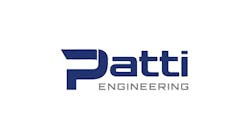IN BOTH the private and public sectors, people realize that good security requires an ongoing partnership among different disciplines. This means sharing information and knowing what to look for.
One of the few good things that occurred after 9/11 is increased security awareness. In both the private and public sectors, people realize that good security requires an ongoing partnership among different disciplines. This means sharing information and knowing what to look for.
The government, through the FBI, Department of Homeland Security and other agencies, is progressively increasing the protection of Americans against terrorism. It has done an excellent job of hardening many potential iconic and critical infrastructure targets. However, 85% of the critical infrastructure in this country is controlled by the private sector. Terrorists will plan attacks where the possibility of success is greatest. They will look for softer targets in the private sector.
Intelligence reports this year suggested that Osama bin Laden had instructed terrorist leader Abu Musab al-Zarqawi to widen operations outside Iraq. While corporate al-Qaida’s operational style against U.S. assets tends to focus on larger iconic targets and involve years of planning, al-Zarqawi’s style tends toward a sustained campaign of simple attacks against lightly defended targets such as shopping malls, movies theaters, industrial sites and local politicians.
A panel of 20 government and non-government counterterrorism experts speculating on the implications concluded that attackers likely would adopt the quick-strike, small-scale style that al-Zarqawi currently uses in Iraq. This signals a shift from al-Qaida’s traditional operational paradigm toward U.S. assets at home and abroad. Al-Zarqawi-led attacks would be difficult to prevent and would challenge preparedness and response plans.
The private sector must become more self-reliant to prevent the unthinkable from becoming reality. This will require an even greater awareness, cooperation between different disciplines and sharing of information. One of the worst statements to hear after any undesirable event is, “I saw some things, but didn’t say anything because I wasn’t sure.”
It’s critical to partner with security and other disciplines to help reduce the probability of a terrorist event at or near your facility or in your community. Plant personnel know the facility and surrounding environment better than anyone else. They also know the contractors, what contract work is being planned or done, the critical raw materials and methods of delivery.
By being aware of red flags, plant personnel can enhance their potential for preventing terrorist opportunities. It's a fact that certain kinds of activities can indicate terrorist plans in the works, especially when they occur at or near high-profile sites or places where large numbers of people gather, such as government buildings, military facilities, utilities, bus or train stations and major public events. Some of these red flags are:
Surveillance: Are you aware of anyone videotaping or monitoring activities, taking notes, using cameras, maps, binoculars, etc., near key facilities/events? Does that contractor need to be taking pictures or video?
Suspicious questions: Are you aware of anyone attempting to gain information in person, by phone, mail, e-mail, etc., regarding a key facility or people who work there?
Security tests: Are you aware of any attempts to penetrate or test physical security or procedures at a key facility or event? Did that “contractor” “innocently” try to enter through a secure entrance?
Acquiring supplies: Are you aware of anyone attempting to improperly acquire explosives, weapons, ammunition, dangerous chemicals, uniforms, badges, flight manuals, access cards or identification for a key facility or event, or to legally obtain items under suspicious circumstances that could be used in a terrorist attack? Can you account for all badges issued to a contractor?
Suspicious persons: Are you aware of anyone who doesn’t appear to belong in the workplace, neighborhood, business establishment or near a key facility or event?
Dry runs: Have you observed any behavior that appears to be preparation for a terrorist act, such as mapping out routes, playing out scenarios with other people, monitoring key facilities or events, timing traffic lights or traffic flow, or other suspicious activities?
Deploying assets: Have you observed abandoned vehicles, stockpiling of suspicious materials, or persons being deployed near a key facility or event?
If you answered yes to any of the above, or if you have observed any suspicious activity that may relate to terrorism, do not attempt to approach or confront anyone involved. Contact your local law enforcement or the closest FBI office.
No matter where you live in the world, this is a message that bears repeating: Your assistance is needed to prevent terrorist acts.
| About the Author |




